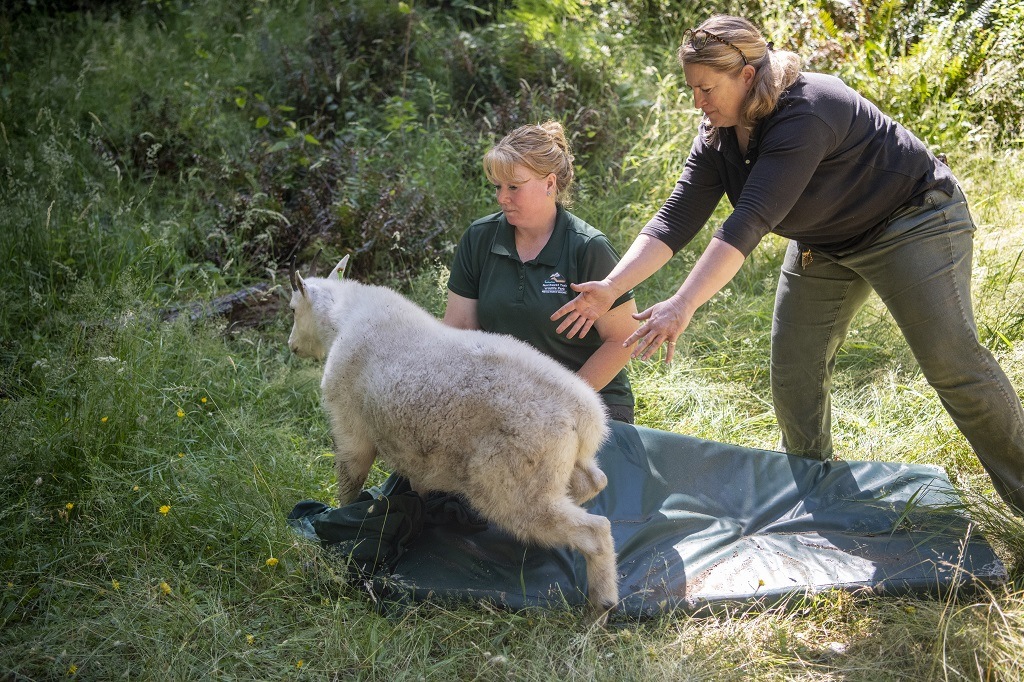Nettle nestled herself along the steep hillside within Northwest Trek’s 435-acre Free-Roaming Area, as if she knew it was time for her annual exam.
It’s an easy adventure for a one-year-old mountain goat – and not so simple for those who care for her.
But Veterinarian Dr. Allison Case, Veterinary Technician Tracy and Keeper Deanna are used to doing what it takes to ensure the animals at Northwest Trek receive exceptional care.
“It’s a very physical job,” Dr. Case said.
After Keeper Deanna tries to entice Nettle off the hillside with some food, Dr. Case darts her with an anesthetic. As Nettle begins to doze off, Dr. Case climbs closer to ensure Nettle is safely positioned on the hillside.
As Nettle’s mom Bailey looks on, Dr. Case drapes a cloth over Nettle’s eyes so she won’t be awakened by the light.
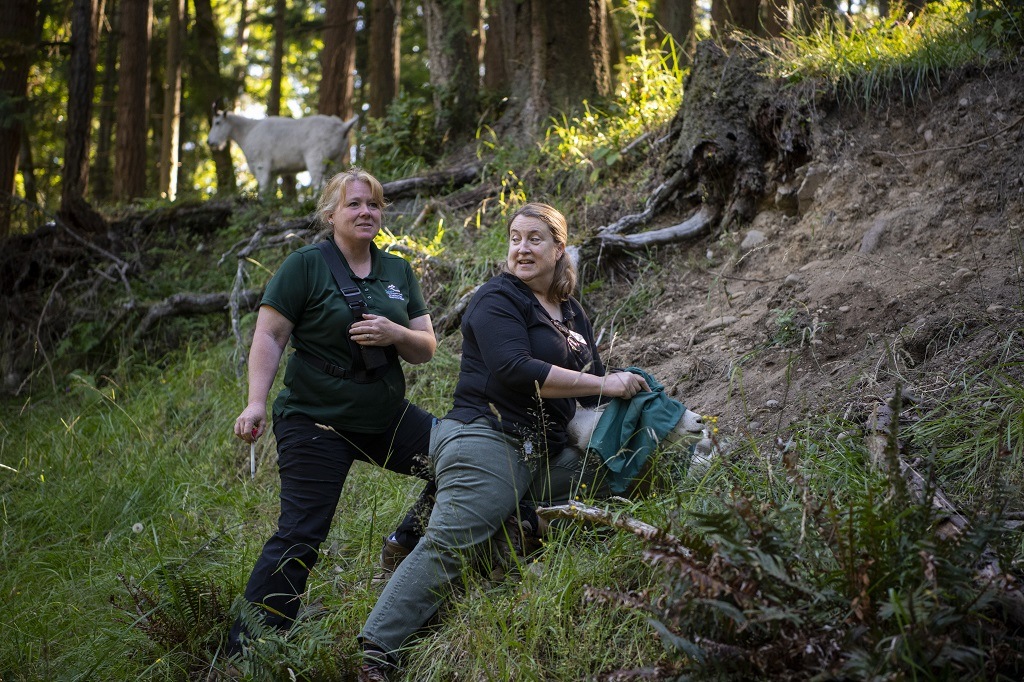
The three team members position Nettle on a tarp and slowly transport her down the hillside.
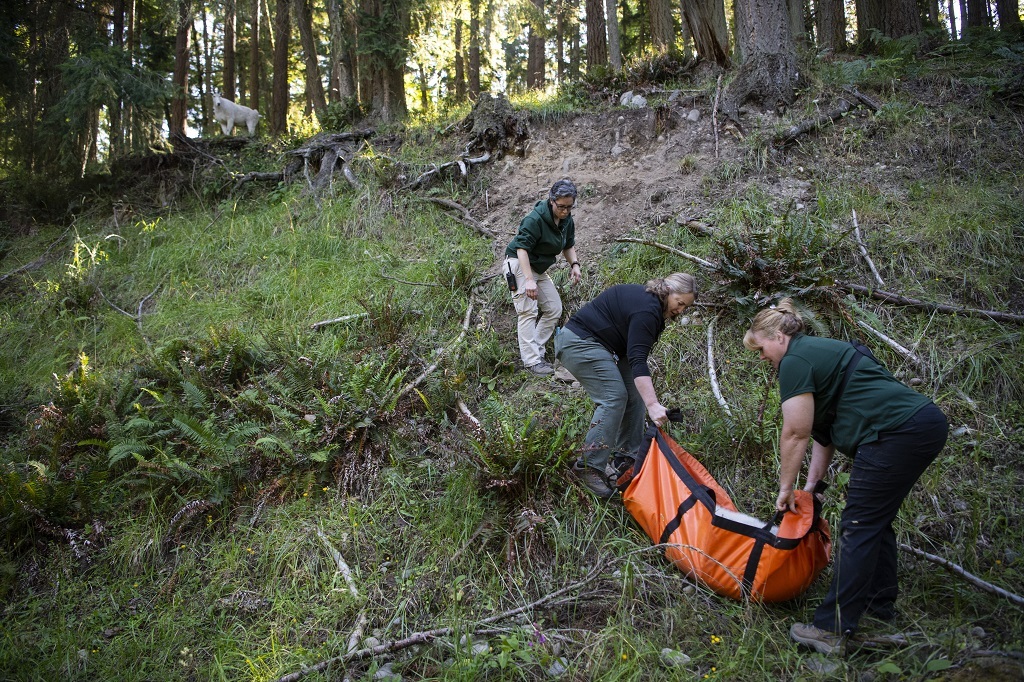
They lift Nettle into the back of the keeper truck. While Dr. Case monitors Nettle, they drive to a more level area.
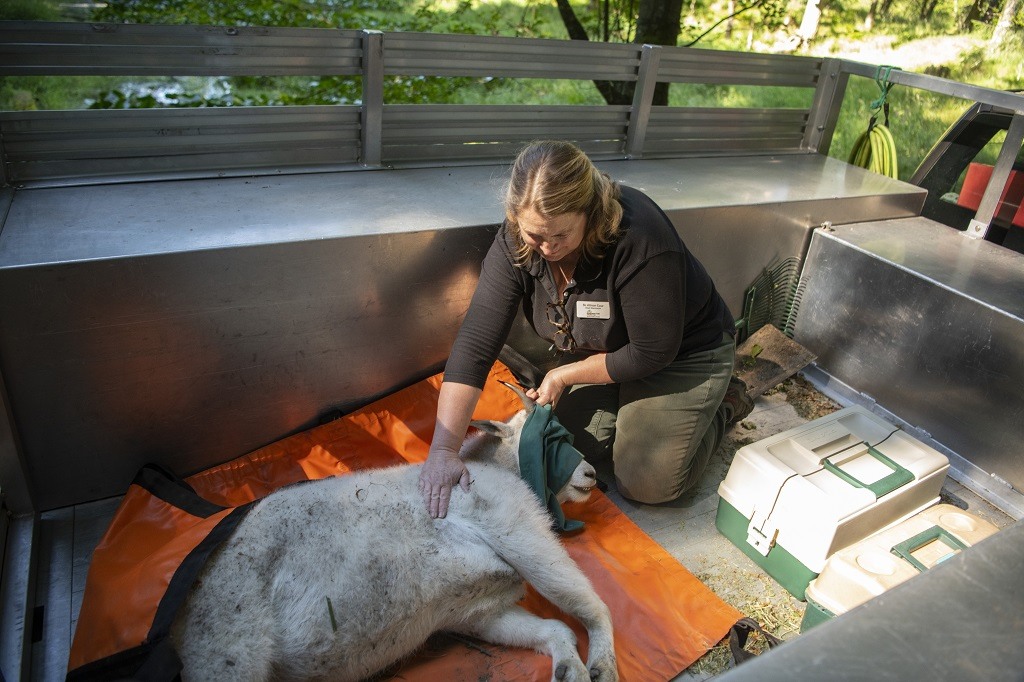
Nettle is then weighed. She weighs 120 pounds, a healthy weight for a one-year-old mountain goat. Fully grown female mountain goats can weigh up to 200 pounds.
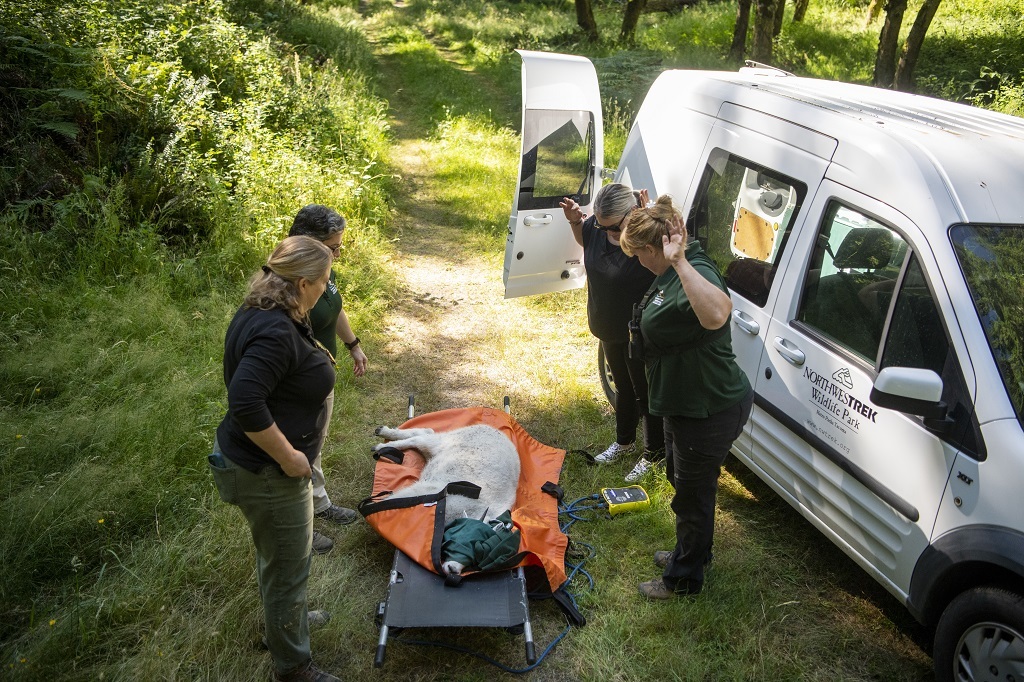
Dr. Case gets a good look at Nettle’s body condition. She examines Nettle’s teeth and discovers her first permanent tooth.
You can typically tell how old a mountain goat is by the number of permanent teeth. Instead of top teeth, a mountain goat has a dental pad, a thick, hard gum line that helps it rip and graze on browse.
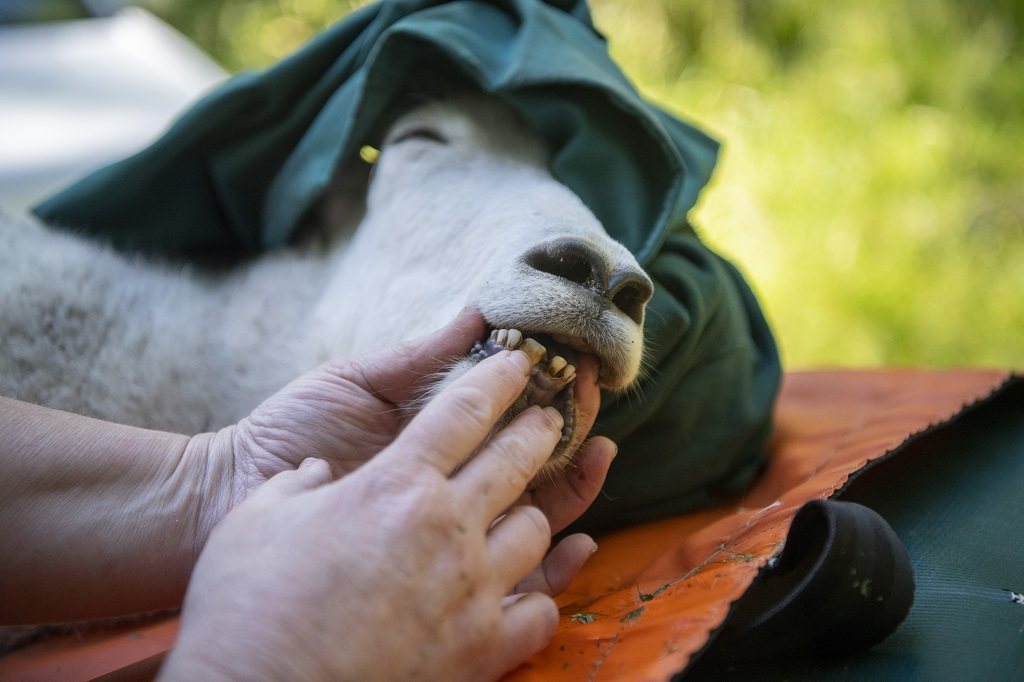
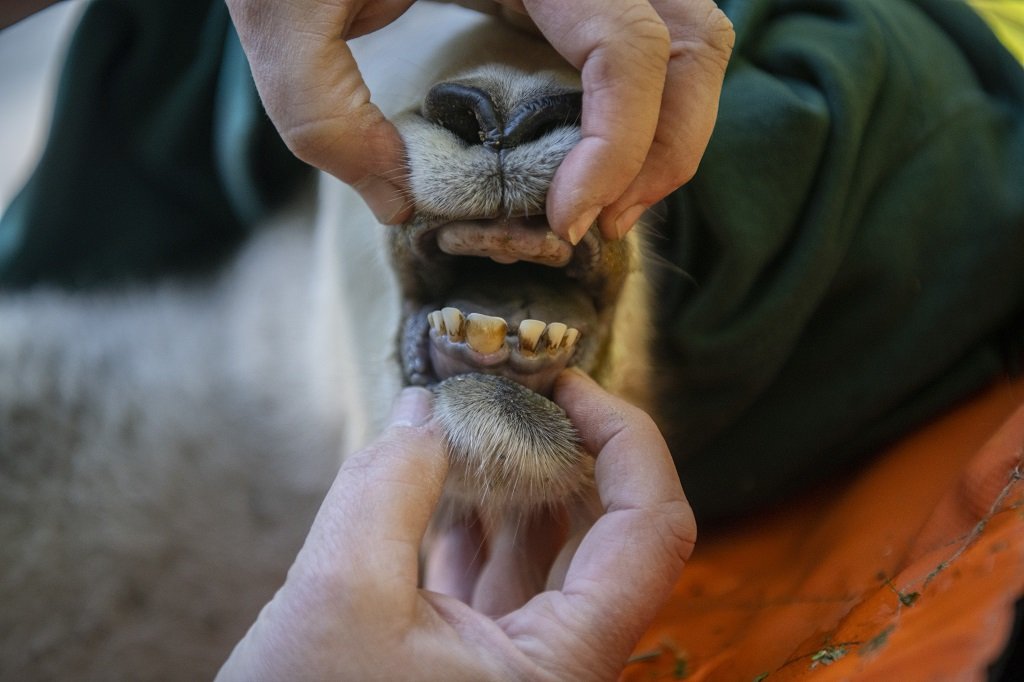
Dr. Case trims Nettle’s hooves.
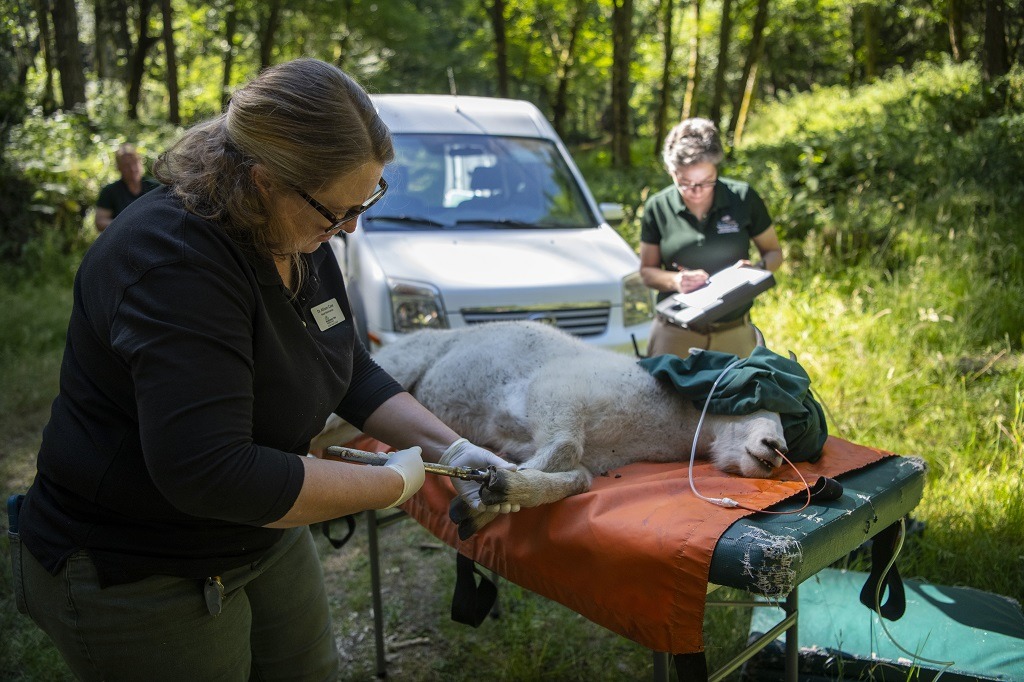
Veterinary Technician Tracy administers vaccines.
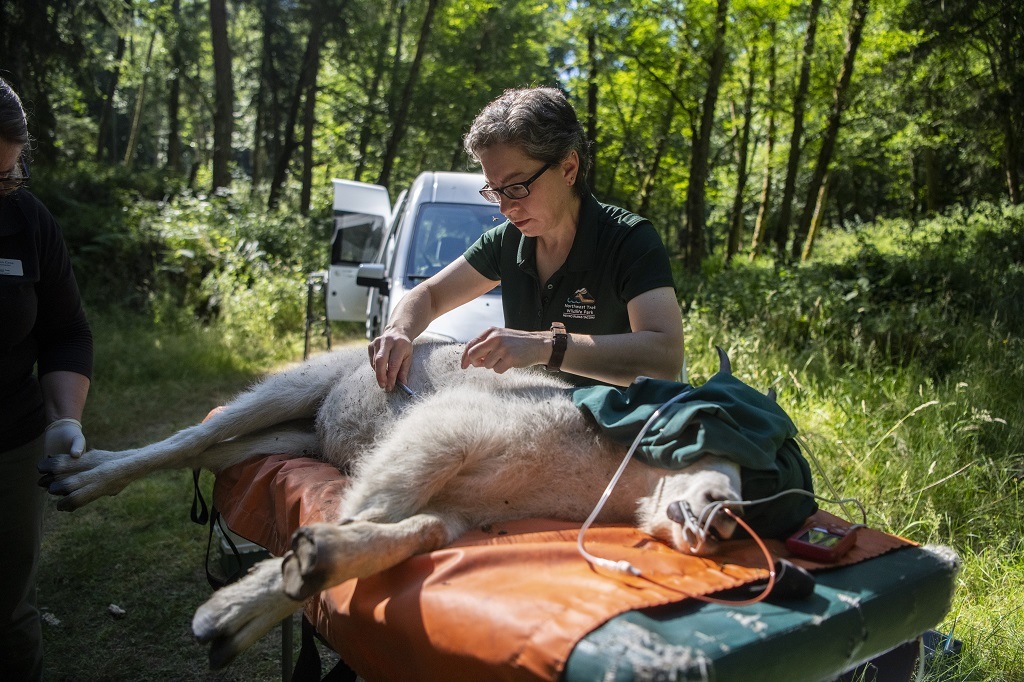
Dr. Case collects blood to be analyzed for any underlying health concerns.
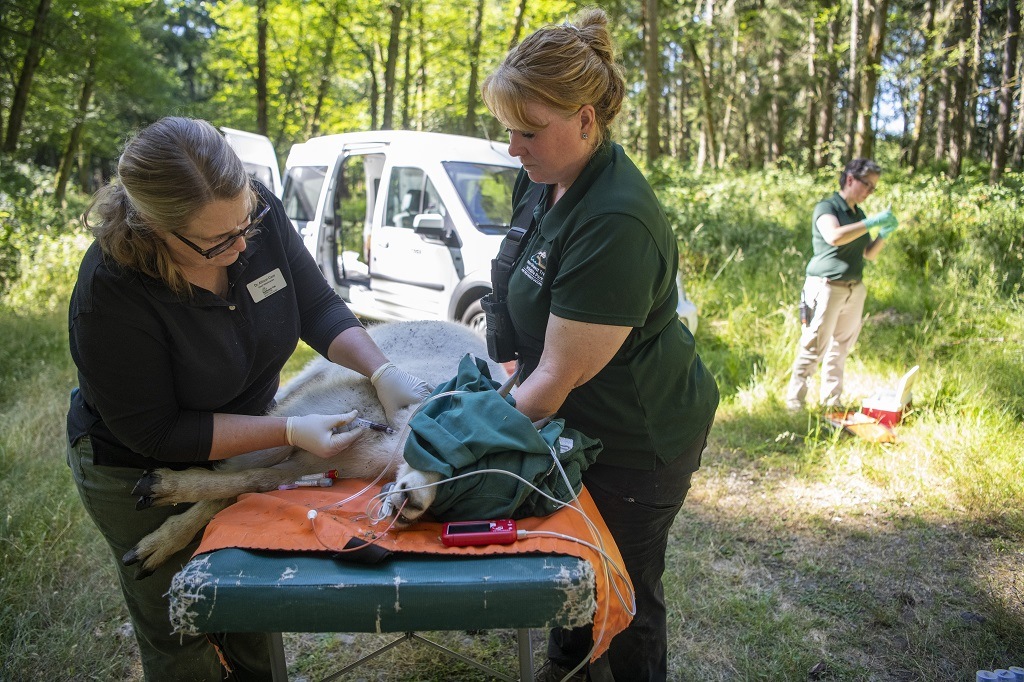
Dr. Case attaches a green ear tag so Nettle can be easily identified.
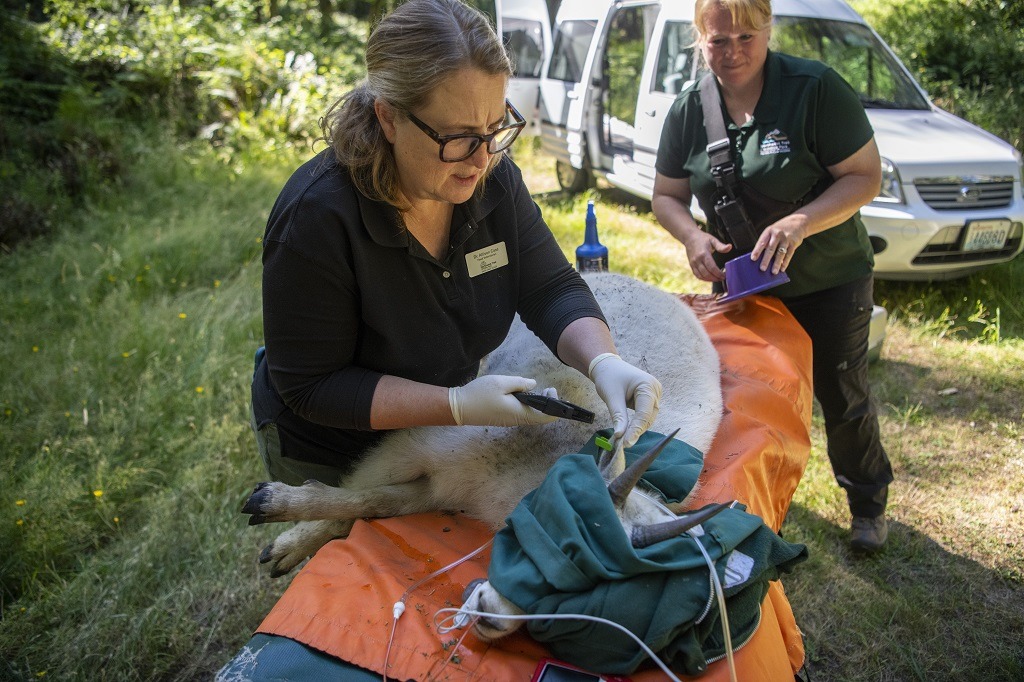
Fly spray is applied to keep pesky bugs away.
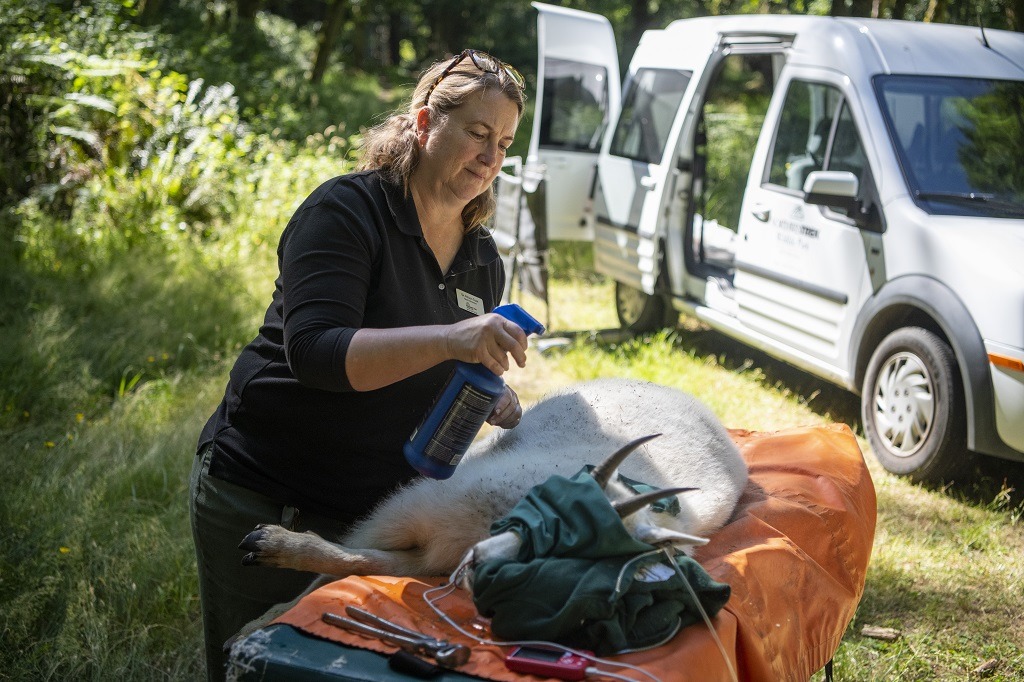
Nettle’s horns are trimmed and smoothed to keep other animals in the Free-Roaming Area safe.
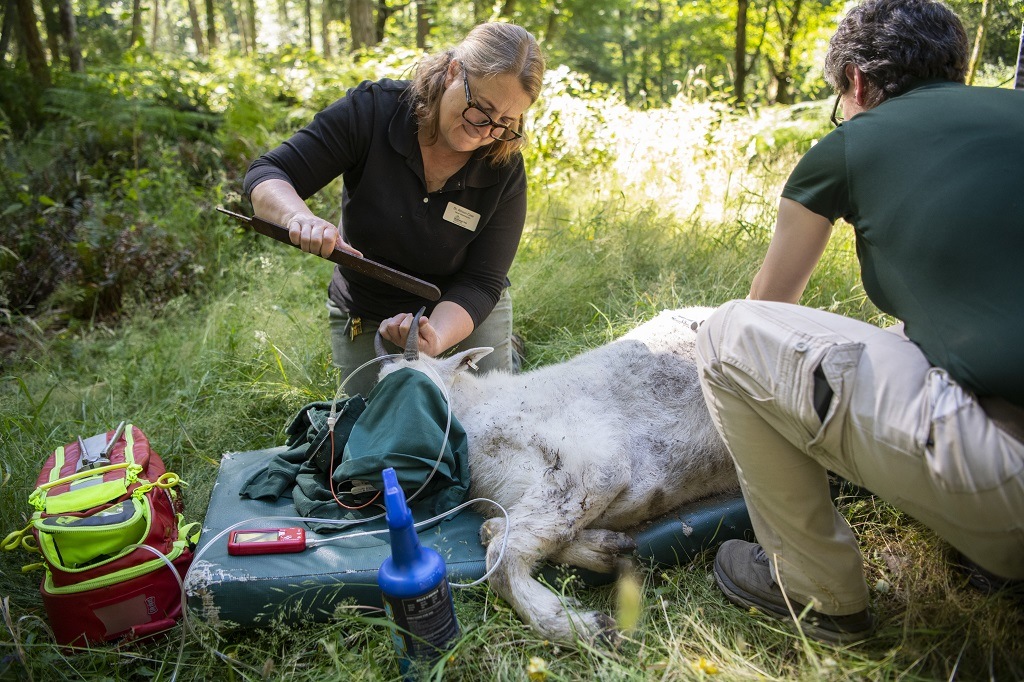
Dr. Case reverses the anesthesia and, alongside Keeper Deanna, monitors Nettle as she wakes up.
“She is in great health,” Dr. Case said.
